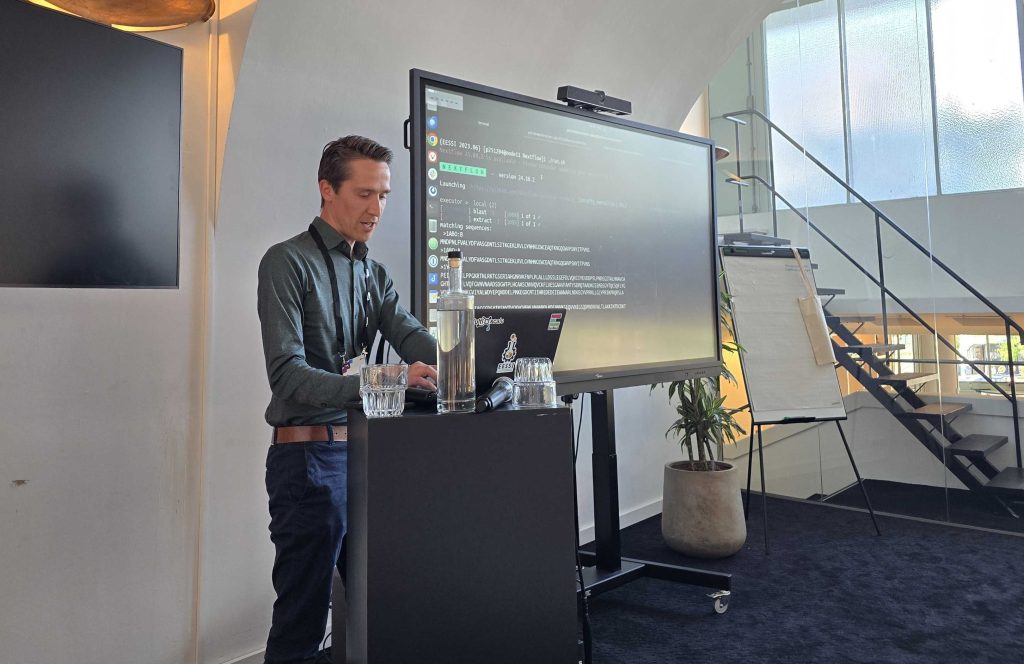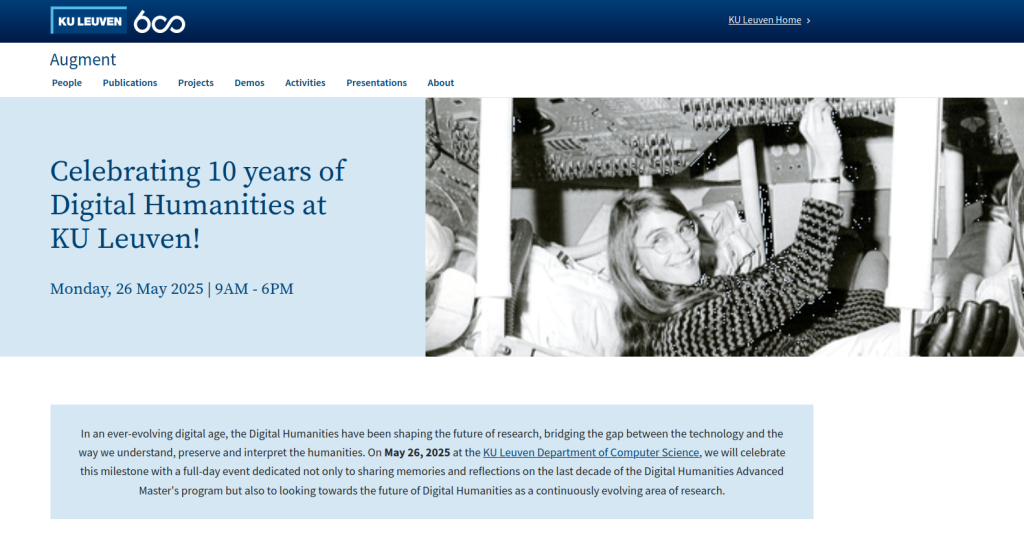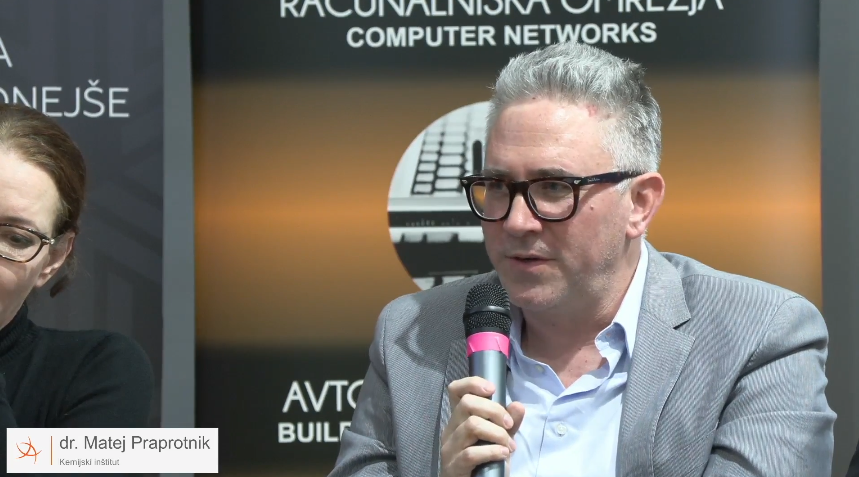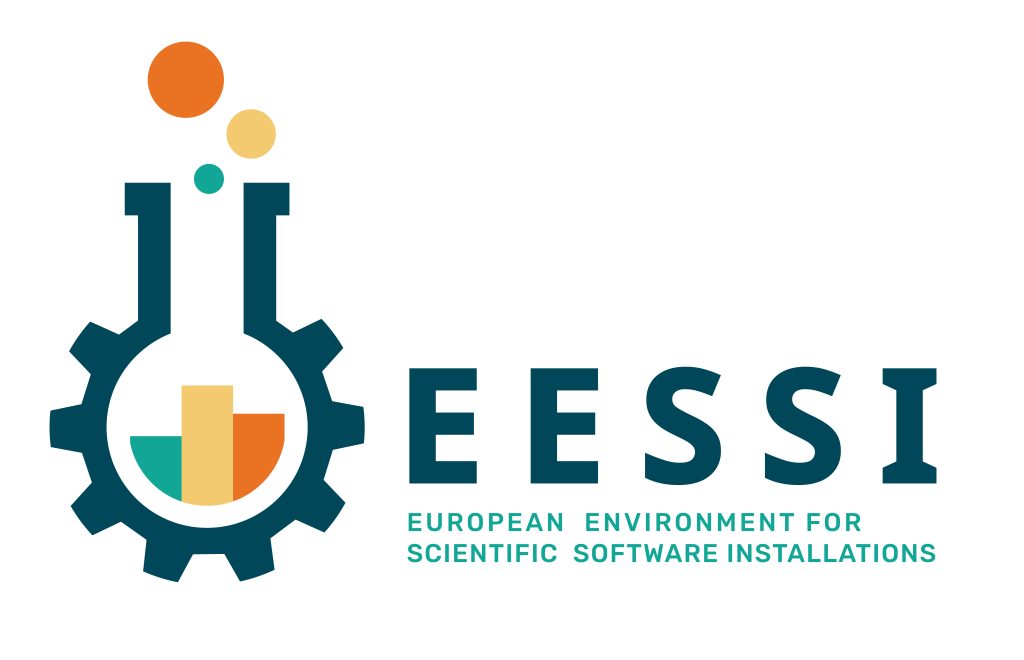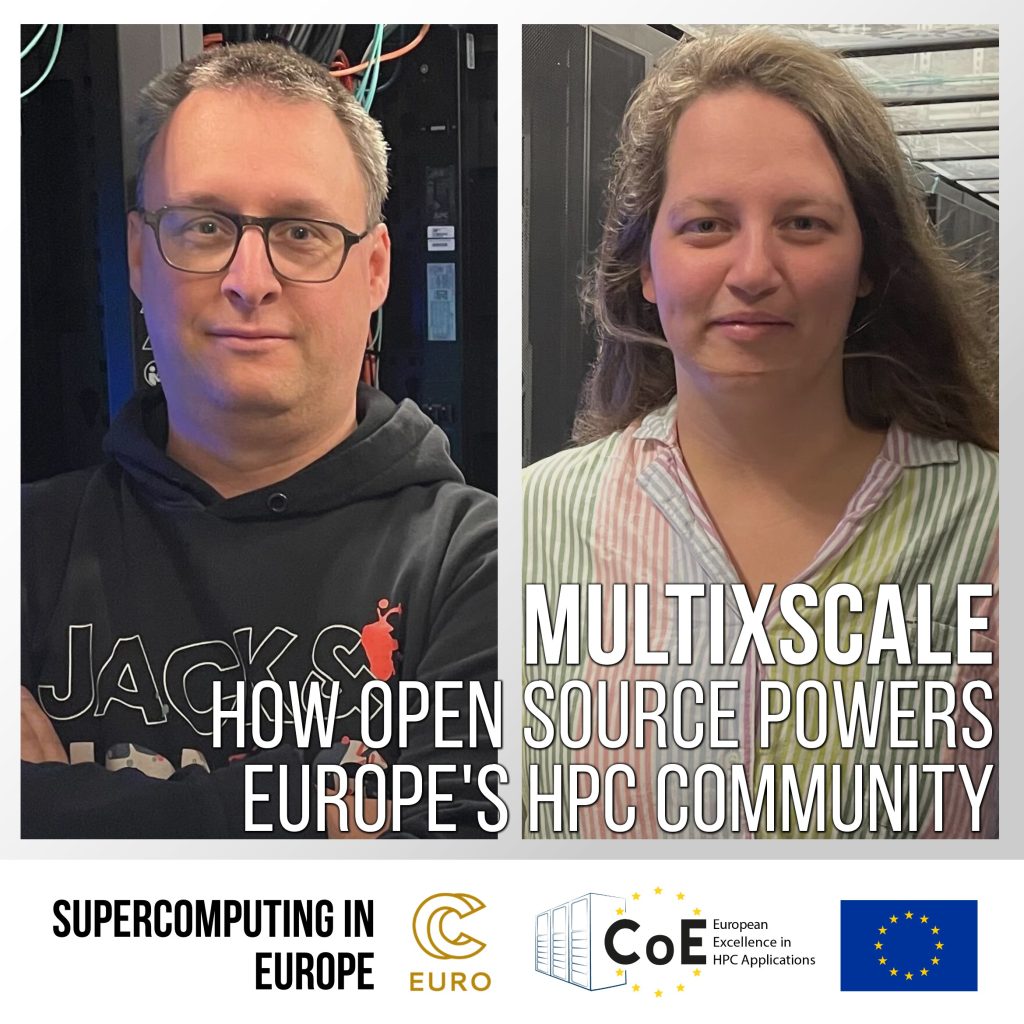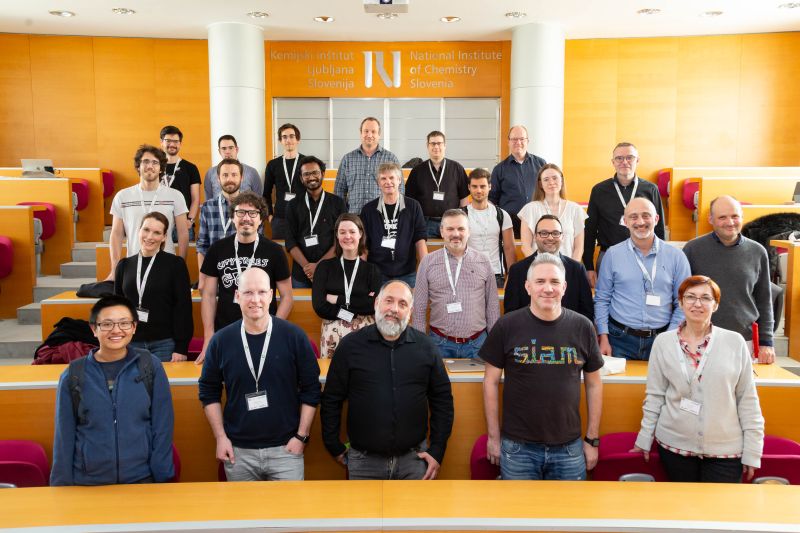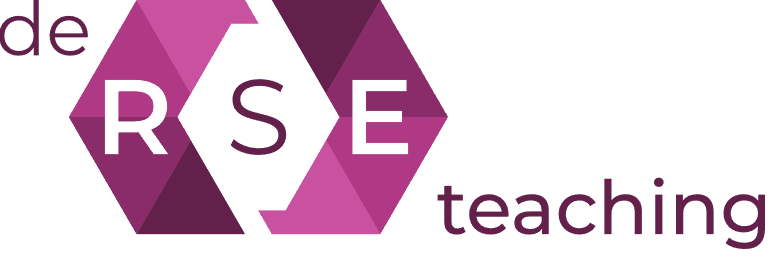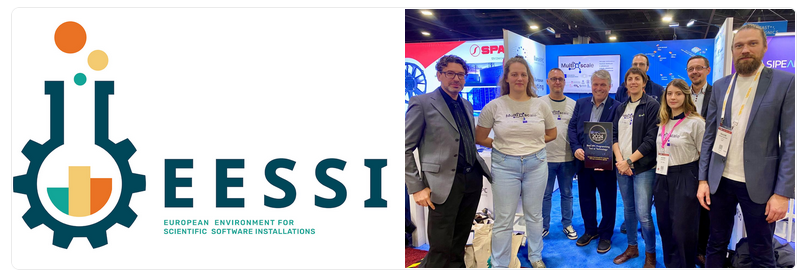SURF Research Day 2025, the national conference connecting research, IT, and innovation in Hilversum (Netherlands).
“The same software on any research infrastructure, wouldn’t that be EESSI?” by our MultiXscale expert Bob Dröge (University of Groningen) on 20 May, during the SURF Research Day 2025, the national conference connecting research, IT, and innovation in Hilversum (Netherlands). Abstract: Modern research often requires cloud or supercomputing infrastructure, but setting up your software environment on such systems can be challenging and time consuming. What if you could have the same software environment everywhere? The European Environment for Scientific Software installations (EESSI) provides a large, uniform stack of scientific software, ready to use on virtually any system in the world: from personal laptop, to a cloud VM, to the largest supercomputers in Europe. In this talk, you will learn how EESSI works, what possibilities it creates, and you will see it live in action. Installing scientific software on complex systems such as cloud VMs or a supercomputer can be a time-consuming hurdle, and may even discourage you from using the infrastructure that would – in theory – be most suitable for your work. It also means that, when you are set up on a system, you are unlikely to move anywhere else, even if better infrastructures become available. The European Environment for Scientific Software Installations (EESSI) is an open-source project that provides a large stack of scientific software, which can be easily made available on any system in the world. This allows you to start experimenting on a local laptop, and then seamlessly move to a cloud VM or supercomputer as your computational needs increase. Aside from alleviating the software installation burden, having the same software environment everywhere opens up many more unique opportunities. In this session we will show some examples, but also open the floor for informal discussion: which opportunities do you see? More info about the event: https://www.surf.nl/en/agenda/surf-research-day-2025
